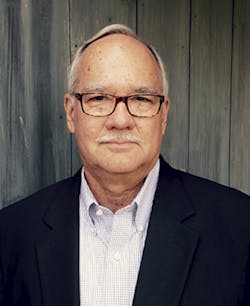Good business, recycling efforts need not be at odds
I am sure you saw the headlines recently:
• "The amount of plastic in the ocean could outweigh fish by 2050"
• "The secret to ending plastic waste and its devastating impacts"
• "Study says human impact has created a plastic planet"
How can the person designing a new blender, or running a blow molding machine, or selling replacement parts for molds relate? The discussion seems many levels removed from our day-to-day business.
But that is not necessarily the case.
The report that sparked the discussion, "The New Plastics Economy: Rethinking the future of plastics," was released by the U.K.-based Ellen MacArthur Foundation with support from the World Economic Forum and McKinsey and Company. It was presented at the World Economic Forum Summit in Davos, Switzerland.
It focuses on plastic packaging but makes no argument that plastic packaging should be shunned. Instead, it argues that what's needed is a new approach based on "creating an effective after-use plastics economy; … drastically reducing the leakage of plastics into natural systems (in particular the ocean); and … decoupling plastics from fossil feedstocks."
It is easy to find what's broken with the world's plastic packaging value chain: Worldwide, 95 percent of plastic packaging material is used just one time, which results in a $120 billion annual loss to the economy. One-third of all plastic packaging is missed by current collection systems and ends up as pollution in the ocean or in urban areas.
The problem is growing. Market research firm The Freedonia Group recently predicted that demand for plastic containers in the U.S. will rise 4.9 percent to $32.4 billion this year.
You may think you cannot fix any of these complex, global problems. While it is true you might not design a package, select the resin to be used or process it to be re-used, the MacArthur report argues that eradicating plastic packaging waste requires the collaboration of all participants in the supply chain. It will take a long time.
The goal, according to the report, is that plastics never become waste.
Certainly, efforts to redesign packaging will play a part, but there is no doubt that new technologies that will be developed by machinery suppliers and recycling companies will have a big impact.
But another pressure being applied to the supply chain is worrisome. At the Plastics Recycling Conference 2016 last month, speaker after speaker lamented low oil prices that are driving down the cost of virgin resin and making it very difficult for recycled resin to compete. Some described the recycled resin markets as being in "crisis."
A healthy market for selling recycled resin supports many players, including the machinery and auxiliary equipment makers that invest so heavily in research and development. The new ideas machinery makers bring to the marketplace are a key to moving the entire process forward.
Machinery makers exhibiting at the recycling industry conference did not say that they are pulling back from developing new products, but several did say that sales have been slow since last summer. Slow sales can certainly mean less money for new products.
So what's to be done?
SPI has a 25-year-old program called Operation Clean Sweep that focuses on keeping plastic pellets out of rivers, lakes and the ocean. It has been implemented by more than 200 U.S. companies. Yet the amount of plastic waste in the water continues to increase.
The Ellen MacArthur Foundation report said as a starting point all the stakeholders need to get around the same table. It has volunteered to act as a facilitator for the diverse groups involved.
SPI and the American Chemistry Council both quickly welcomed the initiative.
So what's your part?
My best suggestion is to stay engaged with SPI's recycling programs and make an effort to attend the SPI's first Re|Focus Recycling Summit & Expo from April 25-27 in Orlando.
"Companies can face very real challenges when they set sustainability goals and many areas of the business need to be aligned for the organization to achieve those goals," says Kim Holmes, SPI's senior director of Recycling and Diversion. "Re|Focus will discuss the challenges that many face in efforts to increase the use of recycled content, better design products for recycling and looking at sustainability in manufacturing."
Being able to offer greater use of recycled content is good business, according to Holmes. That can help increase demand for recycled material, which helps create the drive to sustain a healthy value chain for recycled products and recycling programs.
Good business is something we can all understand. That's the connection between the Davos discussion and what we do every day in plastics processing plants, mold building shops and machinery manufacturing factories.
Ron Shinn, editor
About the Author
Ron Shinn
Editor
Editor Ron Shinn is a co-founder of Plastics Machinery & Manufacturing and has been covering the plastics industry for more than 35 years. He leads the editorial team, directs coverage and sets the editorial calendar. He also writes features, including the Talking Points column and On the Factory Floor, and covers recycling and sustainability for PMM and Plastics Recycling.


